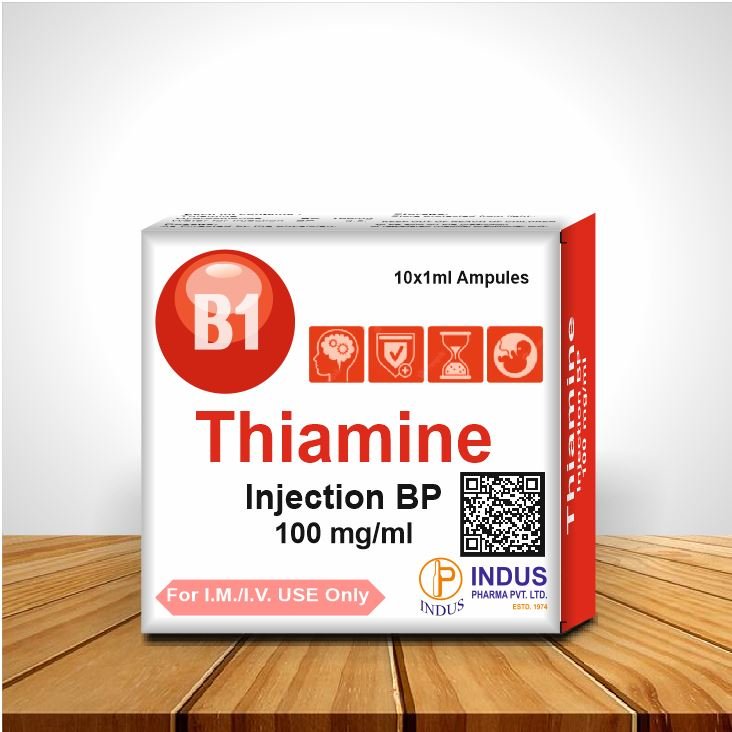COMPOSITION
Each ml contains
Thiamine Hydrochloride BP 100mg
Water for Injection BP q.s
CLINICAL PHARMACOLOGY
Pharmacodynamic properties
Pharmacotherapeutic group: vitamin B1 plain
ATC code: A11DA01
Mechanism of action
The principal physiological role of thiamine is as a coenzyme in carbohydrate metabolism,
where thiamine pyrophosphate (TPP) is required for several stages in the breakdown of glucose
to provide energy.
Thiamine combined with adenosine triphosphate (ATP) is converted to the active coenzyme
thiamine pyrophosphate (thiamine diphosphate) by the enzyme thiamine diphosphokinase.
Thiamine pyrophosphate is a coenzyme in carbohydrate metabolism (in the decarboxylation of
pyruvic and alpha-ketoglutaric acids) and in transketolation reactions. Thiamine diphosphate is
also a coenzyme in the utilisation of pentose in the hexose monophosphate shunt.
Thiamine pyrophosphate would also have a neurotransmitter function.
Thiamine deficiency results in beriberi and Wernicke-Korsakoff syndrome. Clinical signs of
thiamine deficiency become evident after 2-3 weeks of inadequate thiamine intake. The organ
systems principally affected by thiamine deficiency are the nervous system, cardiovascular
system, and GI tract. Administration of thiamine completely reverses the cardiovascular and
gastro-intestinal symptoms of thiamine deficiency; however the degree of improvement in
neurologic symptoms depends on the duration and severity of the lesions.
Fatal deficiency can develop as rapidly as within 3-4 weeks in the absence of thiamine intake.
Several cases of fatal, acute beriberi developed within 5 weeks in patients receiving thiaminedeficient total parenteral nutrition solutions have been observed.
Thiamine Injection BP 100mgml

